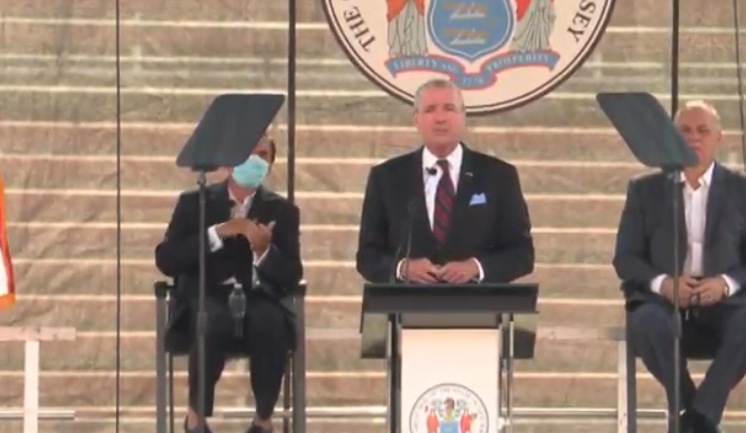Murphy Frustrations Bubble to the Surface

By the time the gubernatorial election arrives on Nov. 2, Gov. Phil Murphy will have spent nearly 50 percent of his entire first term dealing with the COVID-19 pandemic.
From creating a Coronavirus Task Force to prepare for a public health emergency on Feb. 3, 2020, to the first confirmed case in the state on March 4 of last year to his current grappling with re-imposing restrictions to combat the spread of the virus’ Delta variant, there hasn’t been as much time and effort dedicated to one issue in state history.
As the state and the nation reeled under the onslaught of a highly contagious and heretofore unknown pathogen, Murphy invoked his emergency authority to close schools, prohibit public gatherings, lockdown businesses and restrict virtually every phase of daily life.
It was an extraordinary exercise of power, unprecedented in its scope and, most controversially, it was accomplished unilaterally.
His media briefings during the darkest days of the pandemic when hospitalizations numbered in the thousands per day and deaths in the hundreds were grim reminders of living day to day with the worst public health crisis in a century.
No cure existed and the only prevention involved home confinement, wearing face masks and isolating from crowds. The sight of field hospitals and tent cities for the infected to deal with the patient overflow in health care facilities was jarring, creating a depth of public anxiety not previously experienced.
The development in record time of an effective vaccine and building from the ground up a distribution system dramatically slowed the spread of the virus, allowing life to return to very near a normal level.
But, not before more than 912,000 people were infected and nearly 27,000 died in New Jersey.
What seemed to all to be success in turning the corner came crashing down into a horrifying reality with the emergence of the Delta variant, once again sickening more than 1,000 persons per day, primarily those who failed or refused to accept the vaccine.
Murphy once more is in a position of facing difficult and life-upending decisions, convincing a weary and frustrated public that they must wear masks again --- indoors as well as out --- and avoid overcrowded businesses, venues and social gatherings.
He has stopped short of imposing government mandates similar to those ordered last year and lifted as the disease slowed, hinting all the while that such dramatic steps may become necessary if resistance to vaccinations does not fall.
There is but one and only one safe and effective method to combat the virus, Murphy argues ---- greater vaccination levels.
Normally an even-tempered and mild-mannered individual, Murphy’s frustrations have begun to bubble to the surface as he confronts so-called “vaccine hesitancy” and pleads with the unprotected to overcome whatever qualms or philosophical doubts they may have and accept the protection for themselves, families and friends.
The near total preoccupation with the pandemic guarantees his response to it will play a central role in the three months remaining until election day.
He’s enjoyed majority public support for his handling of it, even though criticisms have been directed toward him over the pace and extent of school and business re-openings.
What was originally feared to be a devastating blow to the state’s economy failed to materialize, giving Murphy breathing room to win approval of a record $44 billion budget with relatively little strain in relations with the Legislature over the spending increase.
Republican gubernatorial candidate Jack Ciattarelli has struggled to find lines of attack against the governor’s handling of the pandemic that gain traction and attract popular support.
He’s discovered that despite some grumbling and grousing, when faced with choosing between life’s inconveniences and personal safety, a majority will opt for the latter.
Murphy heads into the heart of campaign season well-positioned, politically and policy-wise.
His party holds a voter registration edge of more than one million and its leadership has put aside, for the moment at least, regional or personal differences, and is solidly united.
By November, he can point to the last 21 months of public angst and his efforts to soothe and ease it as an accomplishment which will withstand political attack.
It’s doubtful he could have foreseen in his 2017 campaign that nearly half his first term would be dominated by a global pandemic.
It is, of course, not over; more illnesses, deaths and difficult decisions lie ahead. New Jersey voters will decide whether Murphy should continue to lead it.
While it’s only August, odds are their decision will be Murphy’s validation.
Carl Golden is a senior contributing analyst with the William J. Hughes Center for Public Policy at Stockton University.





